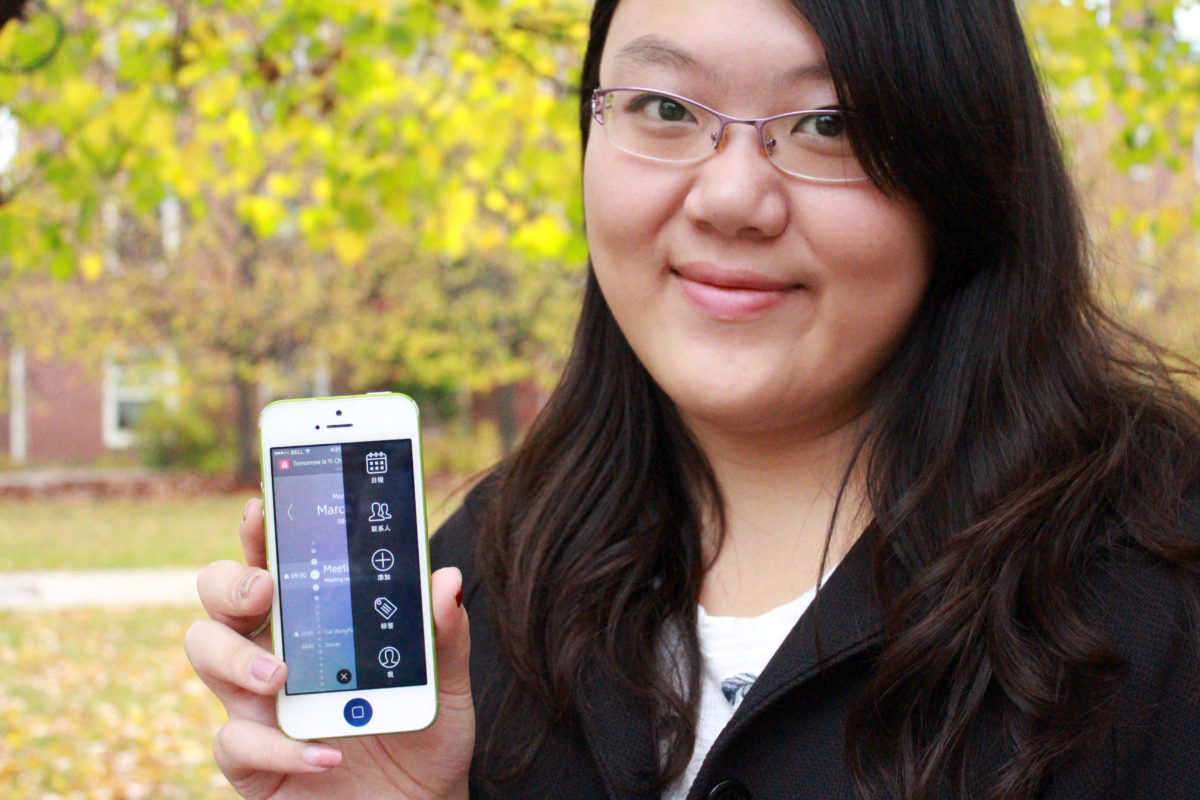
Catrina Ren is a member of China’s one-child generation – a generation that often feels lonely and ill-prepared to organize their social lives.
That’s why the St. Thomas University communications student helped form NarwalTech, a software company that wants to help young Chinese people connect and co-operate with each other. If testing goes according to plan, FriNet will be launched in Beijing in December.
“Our generation is always judged by older generations. This product is one I made for myself and for all my peers to help us get connected better,” said Ren.
FriNet is a CRM-style (Customer Relationship Management) app for smartphones. The product simplifies business software and adds entertainment features designed to help young people cooperate with each other. It gives you a timeline for each profile in your contact list and allows you to organize friends by tags and connect with them through quizzes.
“After you start work, you get to know a lot of people. But after several months, you may forget who the person in your contact list is. Perhaps this person could be very helpful for your future.”
Ren was born into a merchant family in Beijing. Her father is a business owner in the windows and doors business and her mother a certified public accountant. She spent her holidays working with her father at his business.
“I learned a lot just listening to my parents talk about operating a business. They’ve been totally supportive.”
In junior high school, she was the chief editor of the school magazine for two years. Under her leadership, it went from a semi-annual publication to a monthly publication and won the National School Magazine Grand Prize.
In high school, she worked as an intern on the Chinese equivalent of Oprah: Yang Lan One On One, where she worked in the publishing department.
“It was great for making contacts and learning how to sell,” she said.
“To create a company was a dream and a plan for my future life. I just put the plan in advance,” Catrina said, laughing. “I never thought the dream would come so soon, but like every businessperson, I need to catch each opportunity I meet.”
After coming up with the app idea, Ren and her partner, a friend from middle school, put together a team of the best young people they knew in their fields.
After the company was established in April of 2013, the team gathered in her parent’s living room. The 10 original members were lying on the sofa, balancing laptops on their knees and looking at Ren’s presentation on enterprise planning.
“At that moment, it was a lot of pressure on me. It was the first time we met with technicians and we discovered it was going to be difficult to create a totally new product since we had no point of reference.”
Product managers, responsible for understanding customer needs, began to design the product. The financial manager and Ren wrote a solid business plan to attract investors. In the end, the company needed to outsource some of the technical expertise.
The product has been in testing since September.
The Chinese technology market is dominated by domestic monopolies, like Tencent, Alibaba, and Baidu, which have the resources to copy successful ideas quickly. That’s why it will be important to promote the launch of the product, which will be a free download, she said.
“We may need to sell to one of those big companies,” said Ren.
Ren is also a student ambassador with Pond-Deshpande Centre, a UNB-based start-up incubator that promotes and invests in young entrepreneurs. She wants to encourage people who have the same dream as her.
“When you are 30-years-old and have a stable job, you do not want to change, but now everything is still uncertain,” said the 21-year-old. “While you have the chance, why not try?”
